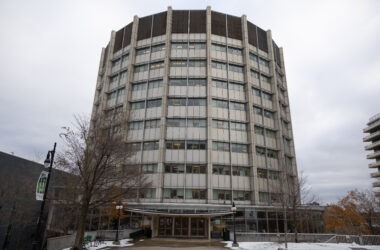In response to a growing number of complaints by residents of the Kahnawake reservation on the South Shore, the Mohawk Council of Kahnawake has served eviction notices to all non-native people living illegally on the reserve.
In accordance with Canadian law, the federal government grants land reserves to native bands, who are then in charge of deciding their own residence laws. The Mohawk Council has established laws that exclude non-natives from living on their lands, said Joe Delaronde, a spokesperson for the council.
“Reservation implies land reserved for native people,” he said. “We’re responding to what the community itself has said.”
According to Delaronde, similar situations have occurred several times over the past 30 years. A growing number of non-Aboriginal residents periodically begin to take a toll on the community and must be dealt with.
“Every once in a while it gets to a point where action has to be taken,” he said.
Delaronde added that the reservation is relatively small and the community cannot afford to allow non-Aboriginals to live on their already-scarce land. The reservation, which borders the south bank of the St. Lawrence, is home to about 7,500 Mohawks.
“We’re squeezed on all sides,” he said. “So the community has made a stand on several occasions.”
Christa Scholtz, a McGill political scientist who specializes in Aboriginal politics, echoed this sentiment on the scarcity of available land on a reservation.
“Reserves, generally speaking, are not big places, and in many communities there are resource constraints,” Scholtz said. “So part of it is, ‘What we’ve got, we don’t have a lot of, and it should be for our use.’ So there is an incentive in some communities to draw the line between ‘who we are and who we are not’ in allocating those resources.”
Although the law may be clear-cut, not everyone is pleased with the band council’s course of action.
“I am very distressed,” said Tracey Deer, a Mohawk resident of Kahnawake and a filmmaker whose films include several documentaries dealing with Aboriginal people’s issues, including Club Native and Mohawk Girl. “I don’t think this is the direction my community should take. I know a lot of people are hurting because of this. It makes me really ashamed that we are doing this to each other.”
Deer acknowledged that there are several non-natives living on the Kahnawake reserve, but she doesn’t see them as a threat to the Aboriginal way of life. The reservation, she said, is often misunderstood as something native people use to hold onto their traditions, when there in fact are several other factors linking native people to their identities.
“I think we have a misguided sense that our strength and our identity is tied to a reserve that doesn’t have white people on it,” Deer said. “But really that has no bearing whatsoever on our strength as a people, as a unique cultural people. That strength comes from our language, our culture, our history, and our sense of community, which right now is right out the window because of this action being taken.”
Despite protests, Delaronde said that the Mohawk Council has no choice but to carry out the evictions.
“We’re messing with people’s lives here, and we know that,” Delaronde said. “But the fact is the law is the law and we have to respect it.”






